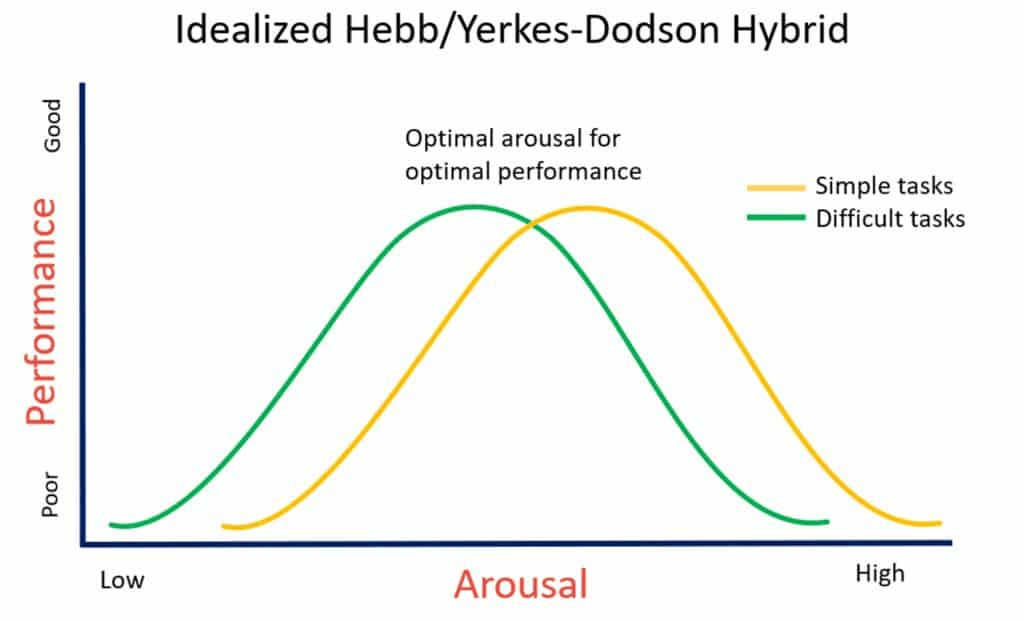- ATP – All Things Psychology
- Posts
- 🔋10 Science-Backed Hacks for Laser-Sharp Focus (ATP#16)
🔋10 Science-Backed Hacks for Laser-Sharp Focus (ATP#16)
How to stay focused in a distracted world
Welcome to ATP—All Things Psychology, a newsletter that brings bite-sized research pieces from Psychology and Neuroscience straight to your inbox, with one goal: To help you leverage science to improve your life.
Not a subscriber yet? Subscribe here so you don’t miss the next one!
Concentrating on a task is an increasingly elusive endeavor because distractions scream for our attention, and we check our phones every few minutes.
Still, there are a few things you can do to concentrate better, and you don't have to throw away your phone for it.
Here’s a list of 10 science-backed strategies to improve your concentration:
1. Be aware of your limited resources.
Your ability to concentrate and pay focused attention to a task is limited. You’re not a machine.
Forcing yourself to work on a complex task for hours sets you up for failure and frustration.
Schedule your most demanding tasks for when you’re at your maximum cognitive capacity (for most people, that’s during morning hours), but don’t overestimate your capacities.
2. Take breaks.
Your brain wasn’t designed for marathon work sessions.
Regular breaks help restore your attention. Take a break at least once an hour, even if it’s just a few minutes.
If you work on a screen, aim for screen-free breaks, e.g., a short walk or a mini workout.
The ideal surroundings to restore your attention and focus are natural environments.
3. Eliminate distractions.
If your phone is buzzing every few minutes, you won’t be able to concentrate even if you decide not to check it immediately. Each notification steals a bit of your focus.
Even if you turn off notifications, simply having your phone in sight can disrupt your ability to concentrate.
Other distractions may include noise from your surroundings, interruptions from other people, and so on.
So: Identify potential distractors and, if possible, eliminate them.
Leave your phone in silent mode in another room.
Use noise-canceling headphones or listen to white noise to block out distractions.
Close your office door and put a “do not disturb” sign outside to avoid interruptions.
4. Allow distractions.
Okay, didn't we just say you should eliminate distractions? We did.
The thing is: If you forbid yourself something, e.g., checking your phone while at work, it can still drain your concentration because the thought of checking your phone will be on your mind.
The workaround: Schedule this kind of activity. If you know that in 20 minutes, you’ll be allowed to check your phone, it bothers you less, and you can stay on task more easily.
5. Write down unfinished tasks.
Unfinished tasks occupy space in your brain, a phenomenon called the Zeigarnik Effect in Psychology.
But there’s an easy way to avoid this: Write down unfinished tasks, even if it’s just a simple to-do list.
This ‘brain dump’ gives you the certainty that the task will still be there later, and you don’t need to provide it with space in your brain to avoid forgetting it.
6. Match your activation level to the task at hand.
There’s a direct relationship between your activation or arousal level and task performance. It furthermore depends on the task’s difficulty.
If the task is challenging, your arousal level should be low. That means avoiding background stimulation and limiting stimulant intake.
If the task is easy, you’ll need some extra stimulation to prevent yourself from searching for stimulation elsewhere. So, for an easy, routine task, a bit of background music could be ideal to help you get into the optimal zone.

There are also individual differences regarding the amount of stimulation needed for optimal activation. Introverts need less than extraverts.
7. No multitasking.
You cannot work on more than one cognitive task at once.
It may feel like you’re doing things in parallel, but in reality, you’re switching between tasks. The switches are so quick that your brain tricks you into thinking that you’re doing more than one thing at a time.
The problem: Each switch costs you cognitive resources. As outlined in point 1, your mental resources are limited, and switching between tasks depletes them more quickly than focusing on one task at a time.
8. Limit your time for a task.
Have you ever heard of Parkinson’s Law? A task fills the time allotted for it. “Work expands so as to fill the time available for its completion.”
In other words: If you grant yourself unlimited time for a specific task, you’ll take longer than when you set time limits for yourself.
So: Use timeblocking more often. Define specific time blocks for specific tasks. Once a block is over, you must stop. This technique forces you to use your time more efficiently.
9. Enhance motivation.
Not all tasks are fun or automatically motivating.
Find ways to make the task more interesting or enjoyable, such as playing your favorite music, sipping a delicious cup of coffee while working on it, or rewarding yourself after certain milestones.
It also helps to consider how the task fits into the broader picture, i.e., how it relates to your long-term goals and dreams.
10. Get the basics right.
All these tips will only work if you’re well-rested. Sleep well, eat well, exercise regularly, and spend time with the people you love.
That’s the foundation of everything.
Wrapping up
Concentrated work is becoming increasingly challenging in a world full of distractions. I hope these tips will help you concentrate better.
If this newsletter edition helped you find new ways to concentrate better, you can buy me a coffee here. ☕ That’s how I keep this newsletter free.
Until next time!
Best wishes,
Patricia (Dr. Schmidt) from creatorschmidt.com.